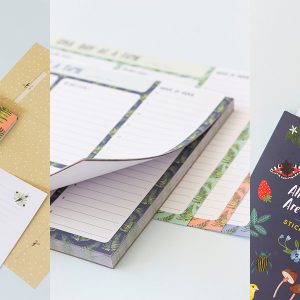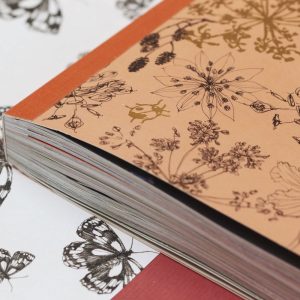Writers are human beings too, and reading their diaries gives you a glimpse into their daily lives, struggles and insights. Journalist Mariska Jansen shares which diaries have impacted her the most.
One of my favorite diaries is that of Virginia Woolf. The British author kept one for 27 years, using it to help keep her grounded and shape her thoughts about the people and world around her. She also used the diary for her literary work, devising story lines for her novels and helping her prepare her readings.
When one of her novels, The years, failed to get a good review, her entry on April 2, 1937, reads: ‘All the lights sank; my reed bent to the ground. Dead and disappointing — So I’m found out and that odious rice pudding of a book is what I thought it — a dank failure’. The dark clouds over her head didn’t disappear until that same evening when an enthusiastic review of the book was printed in another newspaper.
For Woolf, keeping a diary seemed to have been a form of self-therapy. She used it as an outlet for the gloominess that often seized her. ‘But why do I feel this: now that I say it I don’t feel it,’ she wrote on October 25, the first winter day of 1920. And a bit later on she added: ‘Melancholy diminishes as I write’. Her husband Leonard, who published her diaries after she took her own life, warns the reader that the notes are only snapshots, adding that in order for the book to avoid providing a very biased view of her life and personality, it’s important to always bear that in mind.
An old habit
Writers’ diaries are very popular. “This is because of their intimate nature,” explains Michel van de Waart, an editor at De Arbeiderspers publishers. “They’re often natural and unaffected. A diary encourages writers to jot down whatever comes to mind. You get to know the person behind all of the great novels you’ve read, along with their fears, struggles and desires.” De Arbeiderspers has been publishing diaries for over 50 years. “Sometimes writers are advised to keep them,” Van de Waart says. “Most of these notes become part of a writer’s literary legacy.”
One of these ‘legacy’ diaries belongs to Sophia Tolstaya, the wife of the Russian novelist Leo Tolstoy. She knew that her notes would be published after her death because of who her husband was. This didn’t stop her from being honest, however, and this openness is what makes her entries so wonderful, even now.
She lived on a country estate called Yasnaya Polyana (‘clear, open space’) 200 kilometers south of Moscow. Tolstaya also used her diary as an outlet for her inner struggles. On October 8, 1862, she wrote: ‘A diary once again — it makes me sad to go back to the old habits which I gave up when I got married. I used to take to writing whenever I felt depressed, and I am probably doing it now for the same reason’.
- The complete story can be found in Issue 34.
Text Mariska Jansen Photography Fotografierende/Unsplash.com












